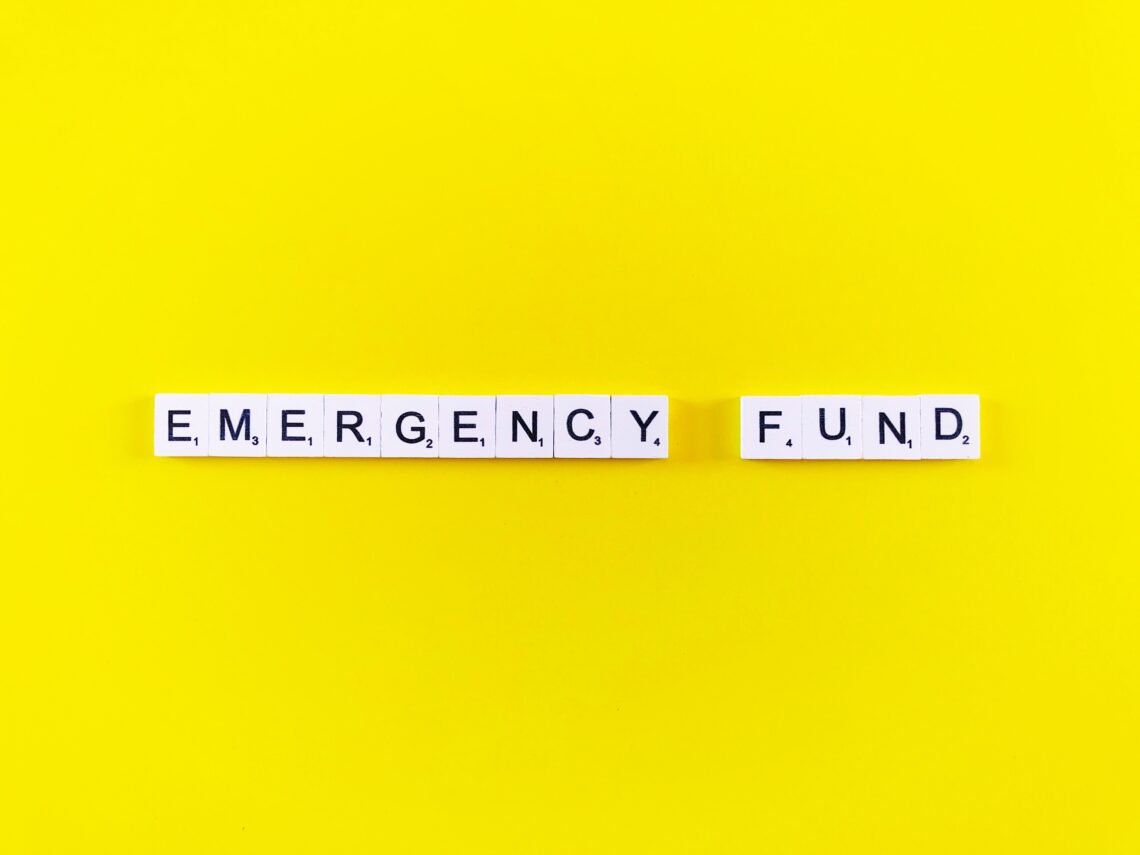
Effective Ways to Build Up Your Emergency Fund
An emergency fund is a crucial aspect of any financial plan. It’s the money you set aside for unexpected expenses or emergencies. It’s essential to have an emergency fund because life can be unpredictable, and you never know when an unexpected expense might pop up. Building up an emergency fund can seem daunting, but it doesn’t have to be. There are simple and effective ways to build up your emergency fund without drastically changing your lifestyle. These steps will help you build up your emergency fund quickly and efficiently, so you can be prepared for anything that comes your way.
What is an emergency fund and why is it important?
An emergency fund is a financial safety net that helps you cover unexpected expenses, such as a medical emergency, car repair or job loss, without going into debt. It is essentially a savings account that is separate from your other savings or checking accounts and should only be used for true emergencies.
Having an emergency fund is crucial for everyone, regardless of your financial situation or income level. Life is unpredictable and unexpected expenses can happen to anyone at any time. Without an emergency fund, you may be forced to take on debt, like credit card debt with high-interest rates, in order to cover these expenses.
An emergency fund provides you with a sense of financial security and peace of mind. It allows you to handle unexpected expenses without worrying about how you’re going to pay for them. It also gives you more control over your finances and reduces your reliance on credit cards or loans in times of financial stress. In short, having an emergency fund is an essential part of financial planning and can help you avoid the stress and financial burden that comes with unexpected expenses.
Determine how much you need to save
Before you start building up your emergency fund, it’s important to determine how much money you actually need to save. The amount you need to save will depend on your lifestyle, expenses, and financial responsibilities. A general rule of thumb is to save at least three to six months’ worth of expenses. This means that if you lose your job or face a financial emergency, you’ll have enough money to cover your bills and avoid going into debt.
To determine your monthly expenses, start by tracking your spending for a few months. Make a list of all your regular expenses such as rent or mortgage payments, utilities, groceries, transportation, insurance, and any other bills you have to pay each month. Once you have a good understanding of your monthly expenses, multiply that by three to six months to determine how much you need to save. If you have any outstanding debts, it’s also a good idea to include those in your emergency fund savings goal. Remember, the more you save, the better off you’ll be in the event of a financial emergency. It may seem like a daunting task to save up such a large amount of money, but by breaking it down into smaller, achievable goals, you’ll be on your way to building up your emergency fund in no time.
Identify and reduce unnecessary expenses
One of the simplest and most effective ways to build up your emergency fund is by identifying and reducing unnecessary expenses. In today’s world, it is very easy to fall into the trap of overspending on things that we do not really need. By analyzing your expenses over the past few months, you can identify areas where you can cut down expenses and divert the saved money towards your emergency fund.
One way to do this is by creating a budget and sticking to it. This will help you track your expenses and ensure that you are not overspending in any category. Look for subscriptions and memberships that you no longer use and cancel them. Cut down on eating out, online shopping, and other non-essential expenses that you can live without.
Another way to reduce unnecessary expenses is by negotiating your bills. Call your service providers and negotiate for better deals on your internet, cable, and cell phone bills. You will be surprised at how much you can save with a simple phone call. By reducing these unnecessary expenses, you can free up some money to put into your emergency fund. Remember, every little bit counts, and the more you can save, the better prepared you will be in case of an emergency.
Create a budget and stick to it
Creating a budget is a crucial step in building up your emergency fund. It allows you to have control over your finances and to see where your money is going. Creating a budget also helps you to identify areas where you can cut back on expenses in order to save money for your emergency fund.
To create a budget, start by listing all of your monthly income sources and expenses. This includes your salary, any side hustles or part-time jobs, bills such as rent, utilities, and car payments, as well as food expenses and any other necessary expenditures. Once you have a clear idea of your income and expenses, you can start to allocate funds towards your emergency fund.
One way to approach this is to create a separate budget line item for your emergency fund. This way, you can contribute a specific amount of money each month towards building up your fund. It’s important to make sure that you’re contributing a realistic amount based on your income and expenses. You don’t want to contribute too little and fall short in case of an emergency, but you also don’t want to contribute too much and struggle to make ends meet. Remember to regularly review your budget and adjust it as needed. Unexpected expenses may arise, or you may find areas where you can cut back even further. By creating a budget and sticking to it, you’ll be on your way to building up your emergency fund and achieving financial peace of mind.
Explore ways to increase your income
One of the most effective ways to build up your emergency fund is to explore ways to increase your income. Whether it’s taking on a part-time job, freelancing, or starting a side business, increasing your income can help you reach your financial goals faster.
One option to consider is taking on freelance work in your area of expertise. There are many websites where you can find freelance gigs such as Upwork, Freelancer, and Fiverr. You could also consider starting a side business that leverages your skills and passions. This could be anything from selling handmade crafts on Etsy to starting a consulting business.
Another option to increase your income is to take on a part-time job. Many companies offer flexible hours for part-time employees, which can be a great option if you already have a full-time job. You can also explore the gig economy, which includes companies like Uber, Lyft, and DoorDash, which allow you to work on your own schedule.
Whatever option you choose, make sure it aligns with your skills, interests, and time constraints. By increasing your income, you’ll be able to save more money each month and build up your emergency fund faster.
Automate your savings
One of the easiest ways to build up your emergency fund is to automate your savings. By automating your savings, you can ensure that a portion of your income is being set aside each month before you even have a chance to spend it. Most banks now offer the ability to set up automatic transfers from your checking account to your savings account on a regular basis. You can choose the amount and frequency of the transfer to best suit your needs and goals.
Another option is to set up a direct deposit with your employer. You can have a portion of your paycheck automatically deposited into your savings account each pay period. This way, you never even see the money in your checking account and won’t be tempted to spend it unnecessarily. Automating your savings also helps to make saving money a habit. You won’t have to consciously think about setting aside money each month because it will already be taken care of. This can help you stay motivated and build up your emergency fund faster without even realizing it.
Consider alternative ways to save money
When it comes to building up your emergency fund, there are different ways you can save money. It doesn’t always have to come from your salary or main source of income.
One way to consider is to sell unused items around your home. Take a look at your closets, garage or storage room and find items that you no longer use or need. You can sell them online through various platforms or have a garage sale.
Another alternative way to save is to reduce your monthly bills. Look for ways to cut back on expenses such as cable TV or phone plans. You can also negotiate with your service providers to lower your bills or switch to a different provider that offers better rates.
Saving on groceries is another effective way to build up your emergency fund. Look for deals, compare prices and consider buying in bulk. You can also use coupons or cashback apps to save money on your grocery bills.
If you have a hobby or skill that you can monetize, consider doing freelance work on the side. This can provide you with extra income which you can save towards your emergency fund.
Lastly, consider doing a “no-spend” challenge. This involves a period of time where you try not to spend any money on non-essential items. You’ll be surprised how much money you can save in a short amount of time. By considering these alternative ways to save money, you can build up your emergency fund faster and more efficiently.
Use windfalls to boost your emergency fund
Windfalls can be a great way to boost your emergency fund quickly. Whether it’s a tax refund, an inheritance, or a work bonus, any unexpected income can be put towards your emergency fund.
Instead of using this extra money on discretionary spending or treating yourself, consider putting it directly into your emergency fund. It may not be as exciting as a vacation or new gadget, but having a fully funded emergency fund will give you peace of mind and financial security.
Another way to use windfalls to boost your emergency fund is to sell unused items around your home. This can include old furniture, clothing, or electronics. Not only will you free up space in your home, but you can also make some extra cash that can be put directly into your emergency fund.
Remember, building up your emergency fund is not a one-time task. It’s important to regularly contribute to your fund and using windfalls is a great way to give it a boost. By making a habit of putting extra money towards your emergency fund, you’ll be better prepared for any unexpected expenses that come your way.
Keep your emergency fund separate and easily accessible
One of the most important things to remember when building up your emergency fund is to keep it separate from your regular day-to-day accounts. This means creating a separate savings account specifically for your emergency fund. By keeping your emergency fund separate, you will be less tempted to dip into it for non-emergency expenses. It also makes it easier to track the balance and ensure that you are consistently adding to it.
Another important aspect of your emergency fund is that it should be easily accessible. You don’t want to have to jump through hoops or wait days to access your money in case of an emergency. Look for a savings account that allows for quick and easy access, such as an online savings account with no withdrawal fees or penalties.
It’s also a good idea to keep some cash on hand in case of emergencies where electronic payments may not be an option. However, make sure to keep this cash in a secure location, such as a fireproof safe, to prevent theft or loss.
By keeping your emergency fund separate and easily accessible, you can ensure that you have the funds you need when unexpected expenses arise.
Celebrate your progress and stay motivated
It’s important to celebrate your progress when it comes to building up your emergency fund. It can be a long and tough journey, but every little bit counts. Celebrating your progress will help you stay motivated and continue working towards your goal.
You can celebrate your progress by setting small milestones along the way. For example, if your goal is to save $10,000, you can set a milestone at $2,000 and treat yourself to a nice dinner or buy something you’ve been wanting for a while. This will give you a sense of accomplishment and keep you motivated to keep going.
Another way to celebrate your progress is to track your progress visually. You can create a chart or graph to track your progress and watch as your emergency fund grows. This can be a great way to visually see your progress and keep you motivated to keep going.
Lastly, don’t forget to reward yourself once you hit your ultimate goal. This could be something bigger like a weekend getaway or a new gadget you’ve been wanting. Celebrating your success will help you feel proud of the hard work you put in and motivate you to continue to save for the future.


